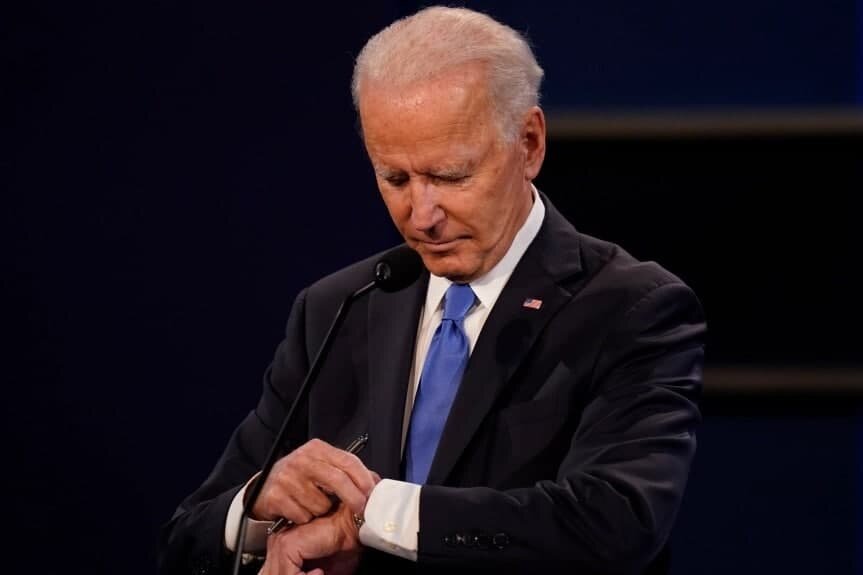Biden and JCPOA: Racing against the clock

The Atlantic Council and the Quincy Institute for Responsible Statecraft have published analyses in two different fields. While the former believes in a “rebirth” in sanctions team at the U.S. Department of State, the latter recommends that Biden’s administration “must be willing to take some political heat” to break the current standoff between Iran and the United States.
The think tank warns Biden that the Oval Office should race against the clock to escape the so far dangerous game between Iran and the U.S.
Daniel Fried and Robert E. Hunter, have commented on the issues, respectively.
Atlantic Council: Guidelines for new sanctions team
In an analysis published on Feb 12, 2021, Daniel Fried, a distinguished fellow at the Atlantic Council sheds light on “rebirth of the State Department’s Office of Sanctions Coordination” and puts forward some guidelines for the new team that holds the promise of substantially increasing the effectiveness of U.S. sanctions policy.
The author, who was the first and so far the only State Department coordinator for sanctions policy, describes sanctions as “increasingly a tool of first resort in U.S. foreign policy”. But he says there is no “disciplined process” to coordinate sanctions policy not only within the State Department itself but also with the U.S. allies.
According to Fried, Congress is seeking to make the new Office of Sanctions Coordination a permanent fixture at the State Department. He believes that such a move can present the U.S. Secretary of State, Antony Blinken, with an opportunity to arrange a policy of sanctions for maximum effectiveness.
Fried emphasizes: “Sanctions will inevitably be an early action item for the Biden administration as it revamps U.S. policies toward Iran, Russia, and China. Establishing the Office of Sanctions Coordination in the first six months of the administration would position the State Department to address these issues as effectively as possible.”
Against the backdrop, the expert proposes several recommendations for the new office to be successful in its “rebirth”. For instance, he underlines it should serve as the central core on sanctions policy and the new team should consist of subject-matter experts on all sanctions issues. Also, in terms of “sanctions diplomacy”, Fried stresses that articulating multilateral sanctions by many countries in parallel is considerably more effective in comparison to unilateral measures. In fact, such a move consolidates a substantive and political thrust which is much less vulnerable to violation.
While the expert describes the United Nations Security Council as “the best venue for negotiating multilateral sanctions”, particularly in cases of Iran and North Korea, he argues that given Russia and China with veto power have turned more adversarial and both are sanctioned as well, UNSCR may no longer be a viable option to count on.
No rebirth in practice
Reviewing Fried’s guidelines regarding the “rebirth” of sanctions team at the Department of State, it seems that there are hardly any fundamental changes as indicators of “rebirth”. Obama and Trump’s sanctions teams, and even Bill Clinton’s, worked multilaterally. They included various experts on different kinds of sanctions teams and tried to build close relationships with allies and partners to make sanction policy as effective as possible. In fact, at best, the Office of Sanctions Coordination is another variant of the previous departments just decorated with a new title.
“Biden must be willing to take some political heat”
In his first network interview on February 7, President Biden told CBS Evening News that the U.S. will not lift sanctions against Iran unless Tehran stops enriching uranium. He affirmed that Washington will not lift sanctions first in order to restart the negotiations with Iran. In addition, in the presidential campaigns, both President Biden and his top officials have been consistent on the requirement that Iran must act first.
Meanwhile, Leader of the Islamic Revolution Ayatollah Ali Khamenei has declared that “if they want Iran to return to its commitments, America must completely lift sanctions, and not just in words or on paper."
In this regard, Robert E. Hunter, the U.S. ambassador to NATO during the 1990s believes that “Biden must be willing to take some political heat” to break the current standoff between the two capitals.
In an analysis published on February 9, 2021, in Responsible Statecraft, a publication of the Quincy Institute, he points out that due to deep-rooted bad blood between Washington and Tehran, both parties are reluctant to make the first move unless the other take proportionate steps towards confidence building.
In this context, Hunter asks: “So what should the Biden administration do?”
He warns that if the current stalemate continues, the dangerous game of chicken already in place may lead to some catastrophic results.
Hunter points to the “time” as a constraint and recommends: “The simplest first step would be for Biden, by a stroke of his pen, to reverse President Donald Trump’s May 2018 withdrawal from the JCPOA. That would challenge Iran to de-escalate.”
The expert also clarifies the U.S. domestic politics, Arab states of the Persian Gulf, and Israel as the main factors which complicate Biden’s decision-making towards the Iran nuclear deal. Meanwhile, Hunter stresses: “It might be possible to take some crisis management steps, such as forging a multilateral agreement on freedom of navigation through the Strait of Hormuz (which is in every country’s interest) or an incidents-at-sea understanding (done either tacitly or quietly at the level of individual ships), as the United States and Soviet Union concluded in 1972.”
Moreover, Hunter believes Robert Malley, the new special envoy for Iran, can contribute effectively to break the inveterate stand-off and writes:
“Assuming that something does become possible with Iran that meets U.S. interests, though not necessarily those of regional partners, Malley must be able to count on President Biden’s willingness to take the domestic political heat.”
